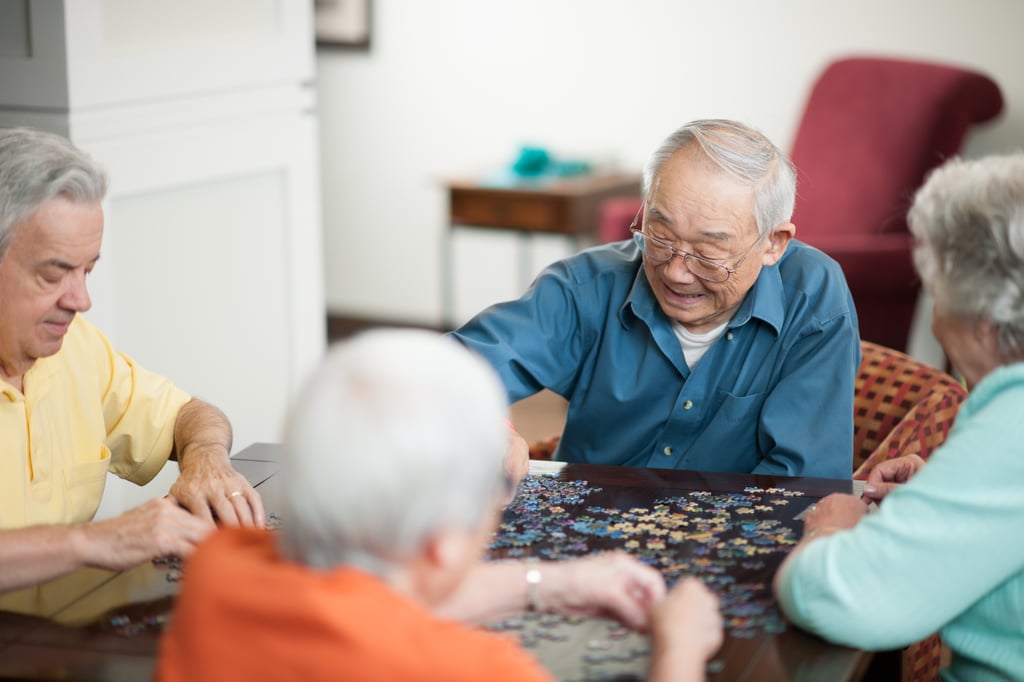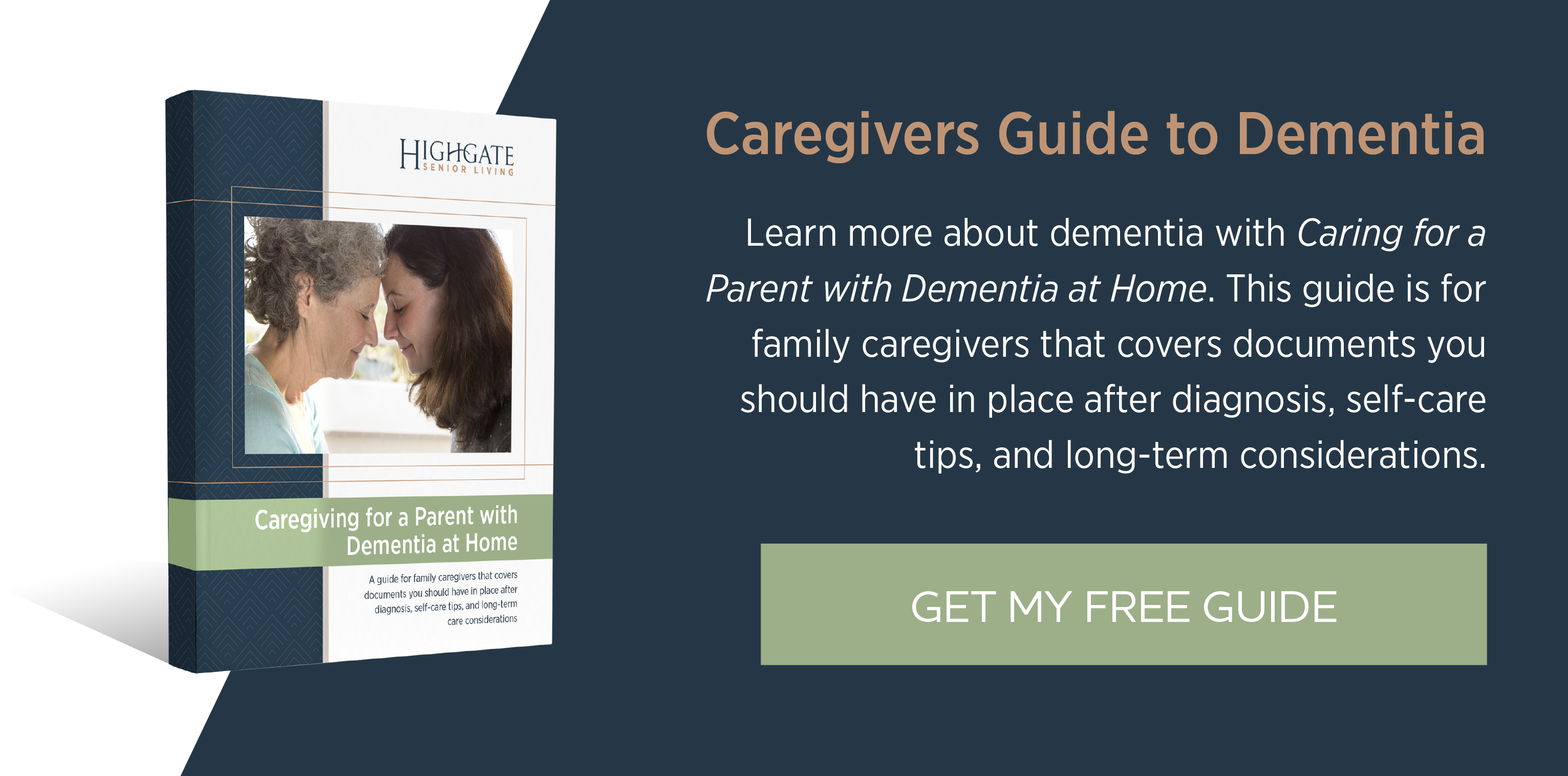 If your loved one has just received a diagnosis of Alzheimer’s or another form of dementia, you might be grieving over the expectation of losses you and your family will experience as the disease progresses. Although there is no cure for dementia, there are a few things seniors can do to slow down their memory loss and improve their overall body and brain functioning.
If your loved one has just received a diagnosis of Alzheimer’s or another form of dementia, you might be grieving over the expectation of losses you and your family will experience as the disease progresses. Although there is no cure for dementia, there are a few things seniors can do to slow down their memory loss and improve their overall body and brain functioning.
Exercise the Brain
According to findings from the Rush Memory and Aging Project, stimulating the brain during the early stages of Alzheimer’s can slow the progression of the disease. Cognitively stimulating activities are mentally engaging activities or exercises that challenge a person’s ability to think. Encourage your loved one to incorporate cognitively stimulating activities into their daily life to help maintain their brain health.
The key is that they should be enjoyable activities so your loved one can stay engaged in the activity over time. If your mom doesn’t want to learn a musical instrument or your dad doesn’t want to go square-dancing with a group of friends, don’t force them. There are many types of activities that can be helpful, including:
- Musical or creative activities. Cooking, gardening, working on hobbies and playing or learning a musical instrument;
- Educational or learning activities. Learning new technology, teaching a new skill to others or taking educational classes;
- Games or puzzles. Playing online or computer-based brain-training games or playing board games or cards;
- Religious or spiritual activities. Attending religious services or meditating in private or in a group.
Other cognitively stimulating activities include watching the news, reading, working a full- or part-time job, volunteering and attending cultural events.
Stay Active
Researchers from the University of Nottingham have shown that staying active can slow the onset of Alzheimer's memory loss. In normal levels, the stress hormone corticotrophin-releasing factor (CRF) is beneficial. It keeps mental faculties sharp and aids in the survival of nerve cells. However, people with Alzheimer’s have reduced CRF levels. Researchers found that a repeated regime of moderate exercise restored the normal function of the hormone.
"This is the first time that researchers have been able to identify a brain process directly responsible for the beneficial effects of exercise in slowing down the progression of the early memory decline characteristics of Alzheimer's disease,” says Marie-Christine Pardon, who led the Nottingham team.
Encourage your loved ones to get active at least five days a week, for 30 minutes or more each day.
Stock Up on Vitamins and Herbs
Researchers have shown that antioxidants and the herb ginkgo biloba can slow the progression of Alzheimer’s. When it comes to antioxidants, the B-vitamins, particularly folate, vitamin B12, and vitamin B6, are believed to be protective against Alzheimer’s disease and age-related cognitive decline, and a clinical trial showed that vitamin E can also help slow down cognitive impairment. Ginkgo biloba, an herb traditionally used in Chinese medicine, can also protect the cells within the brain and the body. Sometimes called the “memory herb,” ginkgo biloba is used in Europe to alleviate cognitive symptoms associated with a number of neurological conditions.
Before taking any supplements and herbs, talk to your loved one’s health care provider about their dosages. High doses of vitamin E, for example, can lead to gastrointestinal problems and other side effects.
Another way to get important vitamins and minerals is to eat a healthy diet. Researchers recommend following the MIND diet, which stands for Mediterranean-DASH Intervention for Neurodegenerative Delay. A combination of the Mediterranean diet and the DASH (Dietary Approaches to Stop Hypertension) diet, the MIND diet is rich in green leafy vegetables, nuts, berries, beans, whole grains, fish, poultry, olive oil and wine.
Head to the Pharmacy
There are no medications that can cure Alzheimer’s or stop it from progressing, but there are some that help lessen the memory loss and confusion for a limited time. The FDA has approved two types of medications to treat the cognitive symptoms of Alzheimer's disease. Cholinesterase inhibitors (Aricept, Exelon, Razadyne) increase the amount of the neurotransmitter acetylcholine in the brain, which helps brain cells communicate, and memantine (Namenda) regulates the activity of glutamate, the brain chemical that helps the brain process, store and retrieve information. Talk to your loved one’s doctor about which medication might be right for them. Doctors sometimes prescribe both types of medications together.
Although Alzheimer's and other forms of dementia can’t be cured, there are concrete steps your loved one can take to reduce their risk and slow the progression of memory loss if they’ve been diagnosed with the disease.






